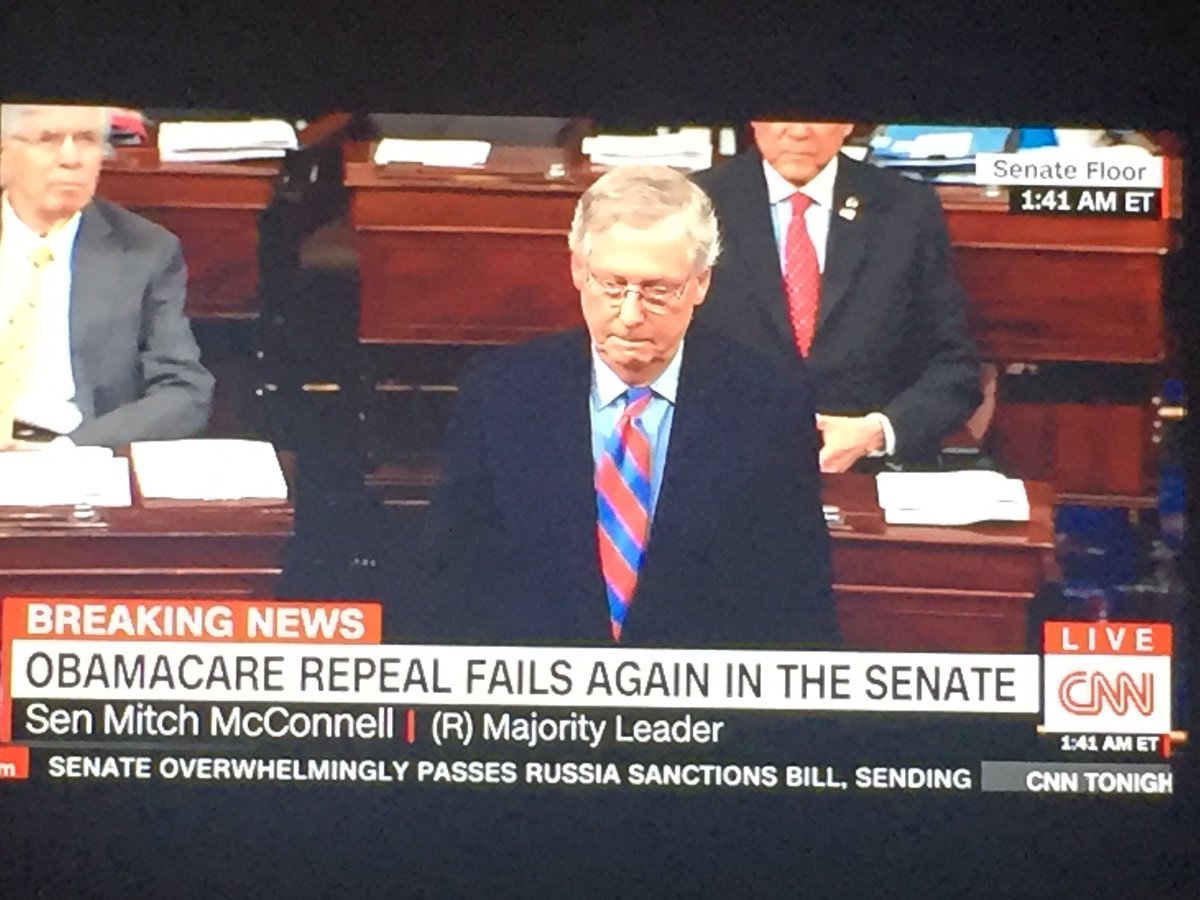Eye of the storm. The Deplorable-in-Chief will let Obamacare collapse under its own weight. As early as now, the Democratic Party and their allies must mobilize grassroots forces on red states that are highly vulnerable to Obamacare collapse and rally people there to lobby their Representatives and Senators to come out with a workable solution to address the upcoming collapse.
At this point, we need to discuss what solutions can the Democrats offer that will pass the Republican House and Senate before the 2018 mid-term elections.
My spider sense is telling me that Big Health Insurance will still have a hand in writing the law on this one. Nonetheless, Democrats must push firmly the conversation towards Medicare for All. As for Republicans, they will push this on market-based principles. What I am seeing at the moment is if the Democrats will pull very strong towards Medicare for All, the most realistic outcome they can work with the Republicans is that from state-based insurance exchange, there will be nationwide-based insurance exchange. Instead at the state level, the risk pool and the market for competing insurers will be way much larger at the national level. If the rules of the level playing field of the market goes as theorized, premiums must go low.
Another battle will be how much of the contribution will go to medical expenses and that of overhead costs and profit. As claimed by the America's Health Insurance Plans (AHIP),
17.8% of the contributions go to operating cost and 2.7% to profit. Perhaps the Obamacare's medical loss ratio (MLR) provision has something to do with it where it
requires health insurers in the individual and small group market to spend 80 percent of their premiums (after subtracting taxes and regulatory fees) on medical costs.. But unfortunately, some states requested for waivers due to non-competitiveness of the health insurance industry in the area. A good example provided by the healthcare blog is Maine
Why did these States receive waivers? For a variety of reasons, but one of the reasons is due to the fact that some states have a less competitive medical market. Maine, for instance, requested a MLR of 65%. The reason was that State only has two large commercial insurers, Anthem Blue Cross Blue Shield (with 49% of the market) and MEGA Life and Health Insurance Company (with 33% of the market). A public-private partnership, DirigoChoice, makes up most of the rest of the market. Three HMO’s have less than 1% of the market combined between them. To avoid the case where a large insurer would leave the market due to minimum MLR requirements and create a near monopoly, HHS decided to approve Maine’s request.
Given what happened to Maine, genuine advocates of free market approach to healthcare must be amenable to a nationwide-based insurance exchanges where the pool will be so large that with the right regulation will depress prices of health care premiums.
But still if Democrats would strongerly play hardball, they must move that healthcare insurers who will enter the nationwide-based insurance exchange to have their MLR at 85%-90%. Put the Republicans to task of draining the swamp in the health insurance industry. To put things in perspective, the Democrats must argue that health insurers must be as efficient as Medicare. In 2015, the total expenditure for Medicare is
US $646.2 B. The administrative costs for Medicare on the same period amounts to
US $41.219 B or 6.38%. Is that a deal or no deal to Big Health Insurance?
Now the question is are Democrats will have the spine of steel to play hardball against the Republicans? That is what we have to see.





























